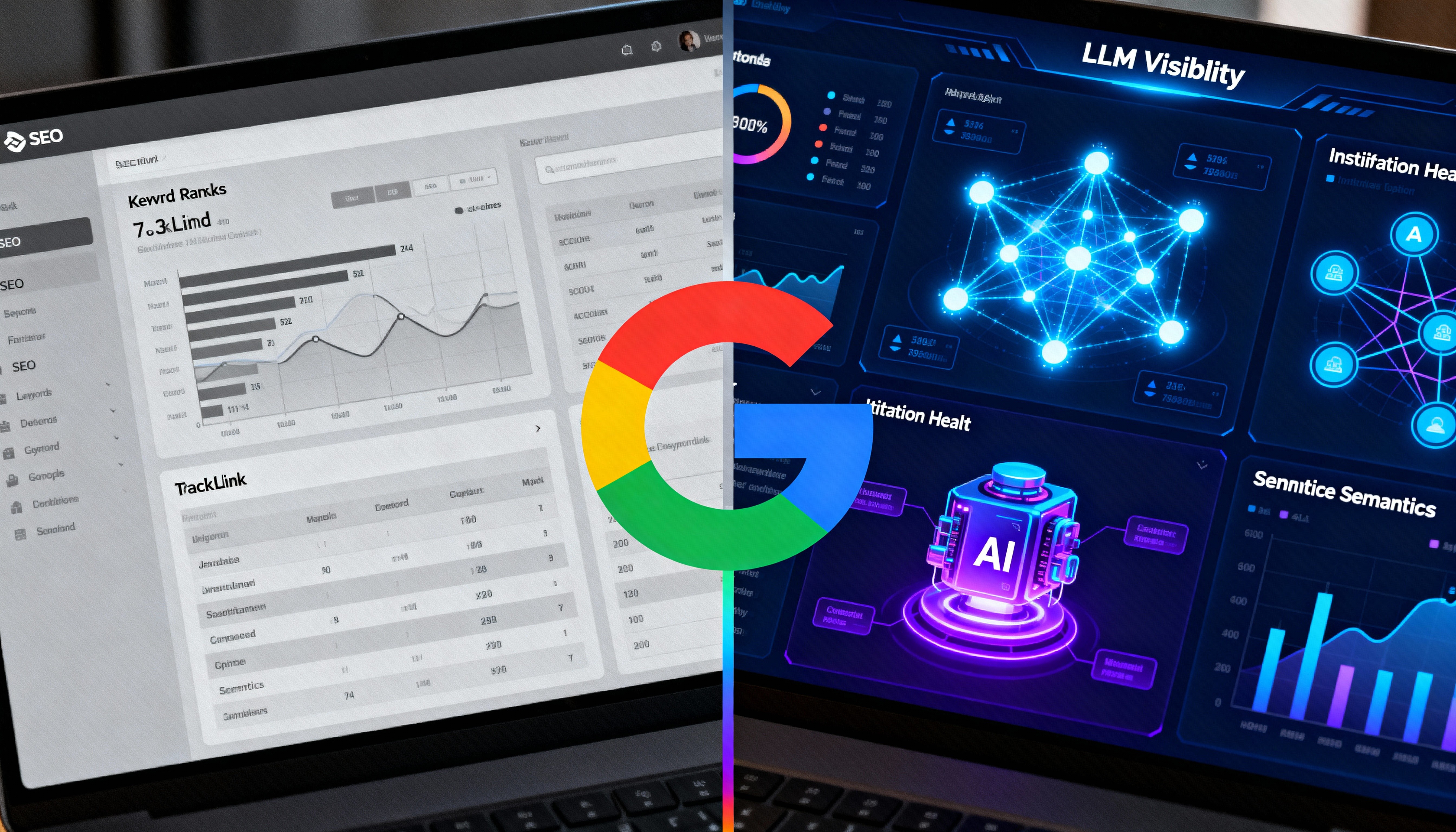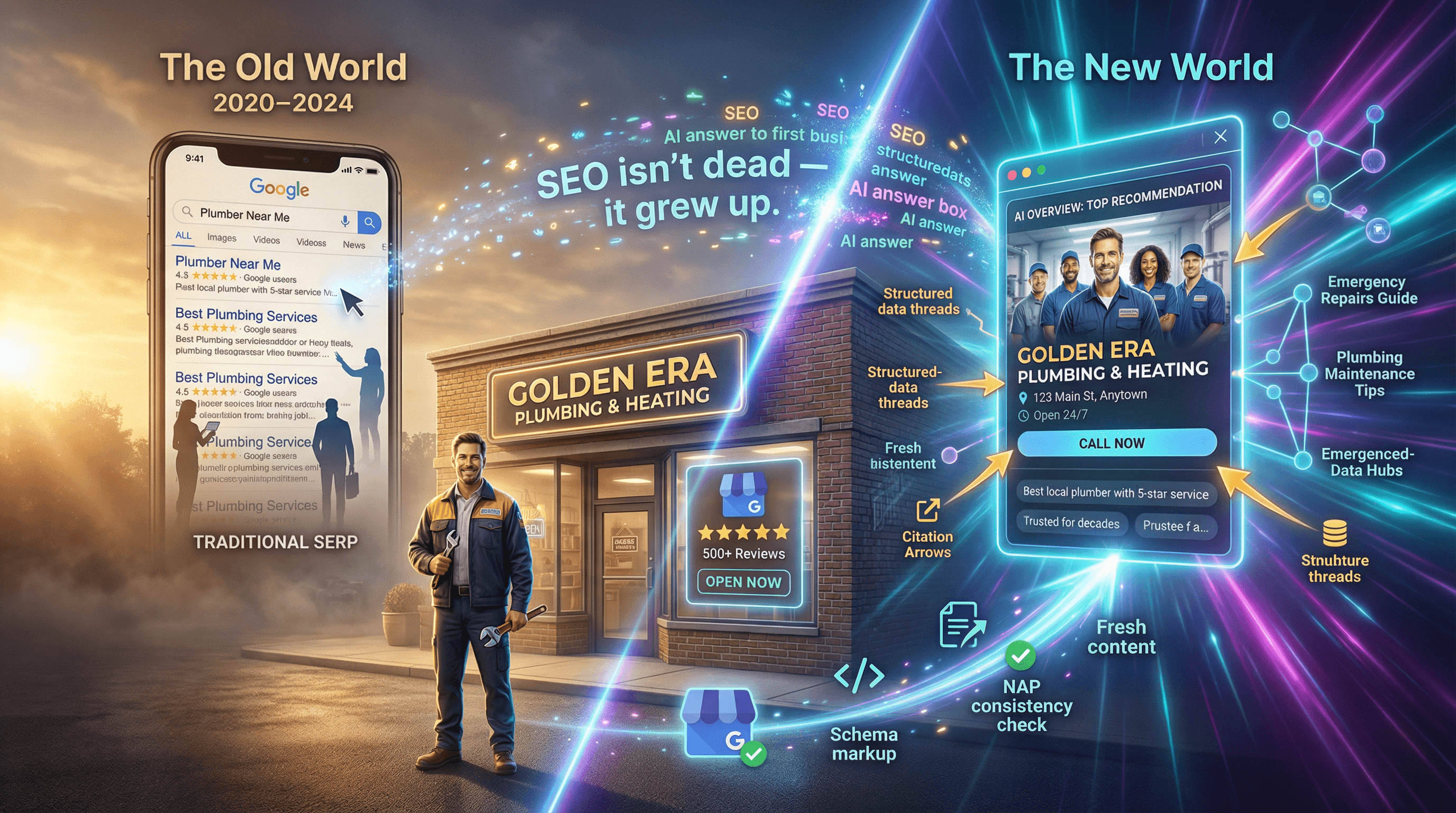Growth Partner
Growth partner vs agency: Discover the key differences, benefits, and which is right for your business's growth and ROI.
So, you're looking to grow your business, and you're wondering who can help. It's a big decision, and honestly, it can get confusing with all the different types of marketing help out there. You've probably heard of traditional agencies, but then there's this newer thing called a 'growth partner.' They sound pretty similar, right? Well, not exactly. The way they work, what they focus on, and how they get paid can be really different. Understanding these differences is key to picking the right team to actually boost your business, not just spend your budget.
Key Takeaways
Traditional agencies often focus on specific creative tasks or campaigns, like making ads or managing social media, usually for a set price or project.
Growth partner agencies act more like an extension of your team, focusing on your long-term business goals and using data to constantly improve results.
Pricing differs: traditional agencies tend to have fixed fees, while growth partners might use performance-based models, meaning they only win when you win.
Choose a traditional agency if your main goal is brand building or a specific creative project. Opt for a growth partner if your priority is rapid, measurable growth and improving your bottom line.
Both models have their place, but a growth partner's commitment to data-driven optimization and revenue growth makes them ideal for businesses aiming for scalable expansion.
Understanding the Core Differences

When you're looking to grow your business, figuring out who to partner with can feel like a maze. You've probably heard terms like 'marketing agency' and 'growth partner' thrown around, and honestly, they sound pretty similar. But let me tell you, there's a big difference in how they operate and what they aim to achieve for your company. It's not just about fancy ads or catchy slogans; it's about how they connect their work to your actual bottom line.
Defining Traditional Agencies
Think of a traditional marketing agency as a specialist in executing specific campaigns. They're really good at things like running your Google Ads, managing your social media posts, or getting your website to rank higher in search results. Their focus is often on delivering these services, and success is usually measured by things like website traffic, likes on a post, or how many people saw your ad. They're great at building brand awareness and making sure your message gets out there in a creative way. They often work on a project basis, meaning they complete a defined task and then the project is done. It’s like hiring a painter to paint your living room; they do the job, and then they leave.
Introducing Growth Partner Agencies
A growth partner agency, on the other hand, takes a much broader view. They see themselves as an extension of your business, working alongside you to achieve long-term goals. Instead of just focusing on campaign metrics, they're laser-focused on what truly matters: your business's growth. This means looking at things like revenue increases, customer acquisition costs, and overall profitability. They use data to figure out what's working and what's not, constantly tweaking their strategies to get better results. They're less about a one-off project and more about building a lasting relationship to help your business scale.
Key Distinctions in Approach
The main difference really comes down to their core philosophy. Traditional agencies often focus on outputs – the ads created, the posts published, the SEO improvements made. Their success is tied to the quality and reach of these specific activities. Growth partners, however, are all about outcomes. They want to see a direct impact on your business's financial health and expansion. This means their strategies are deeply tied to your overall business objectives, not just marketing tasks. They're constantly asking, 'How does this action contribute to revenue?' or 'Will this help us scale more effectively?'
Here’s a quick look at how they stack up:
Feature | Traditional Agency | Growth Partner Agency |
|---|---|---|
Primary Focus | Campaign execution, brand building | Revenue growth, ROI, scaling |
Success Metrics | Traffic, engagement, impressions | Revenue, profit, customer lifetime value |
Relationship | Project-based, transactional | Long-term partnership, collaborative |
Strategy | Creative-led, deliverable-oriented | Data-driven, outcome-focused |
Choosing the right partner is a big decision. It's not just about finding someone to run ads; it's about finding someone who understands your business's ultimate goals and is equipped to help you reach them. A good agency can make a significant impact on your business's success. Choosing the right advertising agency is crucial for business growth.
So, while both types of partners can be valuable, understanding these core differences is the first step in deciding which one is the right fit for where your business is headed.
Strategic Alignment and Objectives
Focus on Deliverables vs. Long-Term Goals
When you're looking for help with your business's marketing or growth, it's easy to get caught up in what looks good right now. Traditional agencies often focus on specific projects or deliverables. Think of a campaign launch, a website redesign, or a set of social media posts. They're great at executing these defined tasks and hitting those immediate targets. The goal is often to produce a specific output, like a certain number of ads or a polished brand video.
Growth partners, on the other hand, are thinking much further down the road. They're not just about completing a project; they're about building something that lasts and contributes to your company's overall success over time. This means they're looking at your long-term business objectives – things like increasing market share, improving customer retention, or expanding into new markets. They want to be part of your journey, not just a one-off service provider.
Measuring Success: Vanity Metrics vs. Revenue Growth
How do you know if the work being done is actually helping your business? This is where things can get a bit murky. Traditional agencies might point to things like website traffic, social media likes, or brand mentions. These are often called 'vanity metrics' because while they might look good on paper, they don't always translate directly into actual business results like sales or profit.
Growth partners are usually much more focused on what really matters to the bottom line. They want to see your revenue go up, your customer acquisition cost go down, and your return on investment (ROI) improve. They use data and analytics to track these tangible business outcomes. If they're running an ad campaign, they're not just looking at how many people clicked it, but how many of those clicks turned into paying customers. It’s about connecting marketing efforts directly to financial gains.
Partnership for Scalable Growth
Think about what you want your business to achieve in the next year, or even five years. Are you aiming for steady, predictable growth, or are you looking to scale rapidly and take on bigger challenges? The type of partner you choose can make a big difference here.
Traditional agencies can certainly help you grow, but their focus on project-based work might mean you need to bring in new help for each new phase of growth. A growth partner, however, is designed to grow with you. They become an extension of your team, adapting strategies as your business evolves. This kind of collaborative relationship is built for sustainable, scalable growth. They help build systems and processes that support expansion, rather than just executing isolated tasks. It’s about building a strong foundation that can handle whatever comes next.
Choosing the right partner means aligning their objectives with your ultimate business goals. It's about finding someone who is invested in your long-term success, not just completing a task list.
Financial Models and Investment
Fixed Fees and Project-Based Pricing
Traditional agencies often work on a fixed fee or project-based model. This means you pay a set amount for a specific service or campaign, with clear deliverables and a defined timeline. It’s like hiring a contractor for a specific job – you know what you’re getting and roughly what it will cost upfront. This can be good if you have a very specific, one-off marketing need, like launching a new product or creating a particular ad campaign. You get a clear budget and can easily compare quotes from different agencies. However, it can sometimes lead to a focus on completing the project rather than on the long-term impact on your business.
Performance-Based and Revenue-Sharing Models
Growth partners, on the other hand, often tie their compensation to your results. This could mean a performance-based fee, where they earn more if they hit certain targets, or even a revenue-sharing model. This approach aligns their incentives directly with your business growth. It means they’re not just executing tasks; they’re invested in your success. While this can sometimes mean a higher upfront investment or a commitment to sharing a portion of your revenue, it also means they are highly motivated to drive tangible outcomes like increased sales or customer acquisition. It’s a partnership where both sides win when the business grows.
Aligning Costs with Measurable Outcomes
When deciding between an agency and a growth partner, think about how their payment structure aligns with what you want to achieve. If your main goal is brand awareness and you have a fixed budget for specific creative projects, a traditional agency’s fixed fee might be suitable. But if you’re focused on scaling your business, increasing revenue, and want a partner who is as committed to those outcomes as you are, a growth partner’s performance-based model could be a better fit. It’s about making sure the money you spend on marketing directly contributes to measurable business growth, rather than just producing marketing assets. You want to invest in results, not just activities.
Who Benefits Most from Each Model?
So, you've got a business, and you're thinking about getting some help with marketing or growth. That's smart. But which kind of help is the right kind for you right now? It really depends on what you're trying to achieve and where your business is at.
Businesses Prioritizing Brand Building
If your main goal is to get your name out there, build a recognizable brand, and connect with people on a more emotional level, a traditional agency might be your best bet. They're really good at creating those memorable campaigns, telling your story in a compelling way, and making sure your brand looks and feels consistent across the board. Think about companies that want to stand out with eye-catching ads or create experiences that stick with customers. They focus on things like brand awareness and making sure people have a good feeling about your company.
Crafting unique brand narratives.
Developing visually appealing campaigns.
Creating emotional connections with your audience.
Industries Requiring Creative Storytelling
Some industries just thrive on great stories. If you're in fashion, food, or anything where the aesthetic and the narrative are super important, a traditional agency often has the creative chops to make that happen. They excel at translating your business's personality into something that people want to engage with, often through beautiful visuals and well-written copy. It’s less about the immediate sales numbers and more about building a long-term reputation and desirability.
Sometimes, you just need someone who can paint a picture with words and images, making your product or service feel special and aspirational. That's where the creative side of traditional agencies really shines.
Companies Focused on Rapid Scaling and ROI
Now, if you're looking to grow fast, see a direct return on your investment, and you're comfortable with a more data-driven, iterative approach, a growth partner is likely the way to go. These partners are all about the numbers – tracking what works, tweaking what doesn't, and constantly optimizing to drive revenue. They're less about a single big campaign and more about a continuous process of improvement. Businesses in tech, e-commerce, or SaaS often find this model particularly effective because these markets move quickly and require constant adaptation. They want to see those sales figures climb and know that their marketing spend is directly contributing to the bottom line.
The Strengths of a Growth Partner

Data-Driven Insights and Continuous Optimization
Growth partners really lean into the numbers. They're not just about making things look pretty; they're focused on what actually moves the needle for your business. This means they're constantly looking at data – website traffic, conversion rates, customer acquisition costs, you name it. Based on what that data tells them, they tweak and adjust strategies on the fly. It’s like having a mechanic who’s always fine-tuning your engine for peak performance, rather than just fixing it when it breaks down.
Flexibility and Adaptability in Strategy
One of the big pluses here is how quickly they can change course. The market shifts, customer behavior changes, and a good growth partner can pivot their strategy without missing a beat. They aren't locked into a rigid plan set months ago. This agility means your marketing efforts stay relevant and effective, even when unexpected things happen. It’s about being able to react to new opportunities or challenges in real-time.
Commitment to Measurable Business Outcomes
Ultimately, a growth partner is all about results that you can see on your bottom line. They tie their success directly to yours. This isn't about getting more likes on social media; it's about increasing revenue, improving customer retention, and scaling the business. They want to help you grow, and because their compensation is often tied to that growth, they're deeply invested in making it happen. They help build systems that support long-term expansion, not just quick wins.
A growth partner acts more like an extension of your own team, deeply invested in your long-term success. Their focus is on building sustainable growth by aligning marketing efforts with overarching business objectives, making them a strategic ally rather than just a service provider.
Here’s a quick look at what you can expect:
Focus on ROI: Every dollar spent is tracked and optimized for the best possible return.
Long-Term Vision: Strategies are built to support sustained business expansion, not just short-term campaigns.
Performance Accountability: Success is measured by tangible business metrics, like revenue and customer lifetime value.
Strategic Risk-Taking: They can help you identify and take calculated risks that lead to significant growth opportunities.
Navigating the Agency Landscape
So, you've looked at the differences, thought about your goals, and maybe even checked your budget. Now comes the part where you actually pick someone to work with. It’s not always straightforward, and honestly, the lines between different types of agencies are getting pretty blurry these days. Some places that used to just do cool ads are now talking a lot about data and growth, and vice versa. It’s a bit of a mixed bag out there.
Evaluating Potential Partners
When you’re looking for an agency, think about what you really need. Are you trying to build a brand that people remember, maybe for a fashion line or a high-end product? A traditional agency might be better at creating that kind of buzz and telling a compelling story. But if you’re in a market where every sale counts, like a competitive tech space, you probably want an agency that’s all about the numbers and making sure your marketing dollars actually bring in more money. It’s about matching their strengths to your specific market.
Here’s a quick way to think about it:
Brand Building Focus: If your main goal is to get your name out there and create a strong image, look for agencies with a history of successful brand campaigns.
Revenue Growth Focus: If increasing sales and getting a good return on your investment is the top priority, find agencies that specialize in data analysis and performance marketing.
Industry Fit: Does the agency understand your business and your customers? Someone who gets your industry can make a big difference.
The Evolving Role of Agencies
It’s interesting how agencies are changing. Many are starting to offer a mix of services. They might have a creative team that can dream up amazing campaigns, but they also have people who live and breathe data, constantly tweaking things to get better results. This hybrid approach means they can handle both the big picture brand stuff and the nitty-gritty performance tracking. It’s like getting the best of both worlds – creative flair backed by solid numbers.
This shift means businesses have more options, but it also requires a clearer understanding of what you want to achieve. You need to know if you're looking for a partner to build your brand's story or one to drive immediate, measurable sales.
Making the Right Choice for Your Business
Ultimately, the best agency for you depends on where your business is right now and where you want it to go. If you’re seeing a lot of red flags in your current marketing systems or sales processes, maybe start with an agency that can fix immediate problems. If things are mostly running smoothly, and you’re looking to really scale up, a growth partner might be the way to go. Don't be afraid to ask potential partners how they measure success and how they plan to contribute to your long-term goals. It’s not just about hiring a service provider; it’s about finding a partner who’s invested in your success.
Consider this quick checklist before you decide:
Quick Wins vs. Sustainable Growth: Do you need a short-term boost or a long-term strategy?
Budget Structure: Are you looking for fixed project costs or a performance-based model?
Involvement Level: Do you want to be hands-on, or prefer to let the experts manage things?
Remember, there’s no single right answer. The best choice is the one that aligns with your current needs and future ambitions. You can always adjust your strategy and switch partners as your business evolves.
Making the Right Choice for Your Business
So, we've talked about what makes traditional agencies and growth partners tick, and how they go about their work. It really comes down to what you need right now. If you're focused on building a strong brand image with creative campaigns, a traditional agency might be your best bet. But if your main goal is to really scale your business and see those numbers climb, a growth partner is probably the way to go. Think about where your business is at and what you want to achieve next. There's no single right answer, and you can always change your approach as your company grows and its needs shift. The important thing is to pick the partner that truly understands your vision and can help you get there.
Frequently Asked Questions
What's the main difference between a regular agency and a growth partner?
A regular agency usually focuses on specific tasks, like creating ads or managing social media posts. They often work on a project-by-project basis. A growth partner, however, works with you like a teammate. They focus on your business's big, long-term goals, using data to find ways to help you grow and make more money over time.
How do they charge for their work?
Traditional agencies often charge a set price for each project or service. Growth partners might charge based on how well they perform, like a percentage of the sales they help you get, or a monthly fee. This means they're more invested in making sure you succeed because their pay is tied to your results.
Why would I pick a growth partner instead of a regular agency?
If you want more than just someone to create marketing materials, a growth partner is a better choice. They help you plan for the future, improve how well your ads work, and track everything to make sure your money is spent wisely. They're focused on growing your business overall, not just completing tasks.
What kind of businesses do best with a growth partner?
Businesses that need to grow quickly, like online stores or tech companies, often benefit the most. These businesses need to change strategies fast and use information to make smart decisions. Growth partners help them adapt and make more money as they get bigger.
What makes growth partners so good at helping businesses grow?
Growth partners are really good at using information from data to make things better all the time. They can change their plans quickly if something isn't working. They also focus on making sure the money you spend on marketing actually brings in more money for your business.
How do I know which type of agency is right for me?
Think about what you need most right now. If you need a strong brand image and creative ideas for a specific campaign, a traditional agency might be good. If your main goal is to grow your business quickly and make more money, and you want a partner who's invested in that, a growth partner is likely the better fit.
























































































